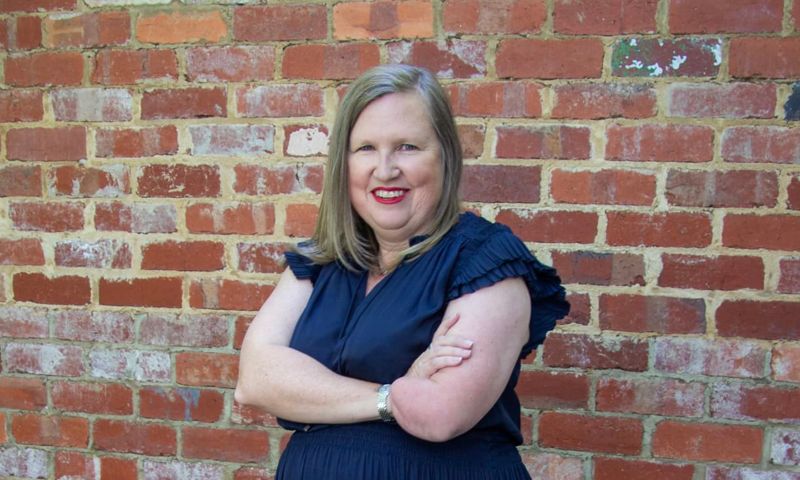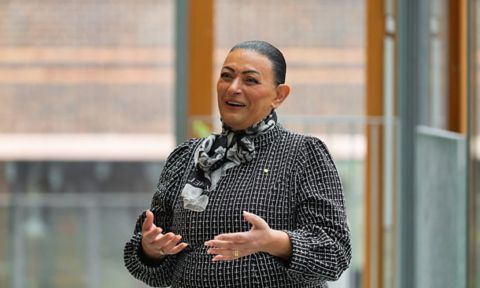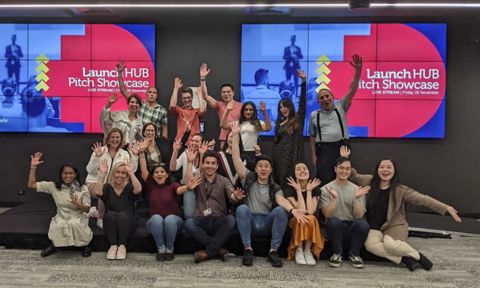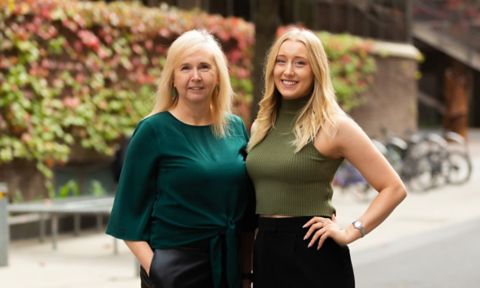A degree for a career and so much more
Emma opted for accounting because, quite simply, she loved numbers and people. She chose RMIT because she wanted a degree with practical experience and also to attend somewhere centrally located.
After two years of study, Emma did a practical year at Arthur Andersen. She returned to RMIT for a final year of study, and after impressing during her practical year, she was offered a graduate position at Arthur Anderson. She later joined Anderson Consulting in 1996, which changed its name to Accenture in 2001.
Emma became a chartered accountant and during her 20s took on contract consulting work that saw her travel and work in South Africa, the UK, Denmark and Italy for three years.
As her consulting career gathered momentum and she developed greater experience in the industry, Emma continually added to her skillset.
“I’ve really been able to build on what my core degree was and kept adding different skills into my toolbox,” she said.
“I didn’t stay in a purely financial role, but having that understanding of how money works, how you make money and how you read financial statements has always stood me in good stead.
“I’m a board member and those skills [in] finance seem to be rare and have always helped me in my career. It was a fantastic [degree] to get that I’ve never regretted.”
Building up to board positions
An avid lifelong learner, Emma completed the Williamson Community Program in 2018 through Leadership Victoria, where she went on to become a board member in 2021.
In 2022 she studied the Company Directors course at the Australian Institute of Company Directors.
These extra layers of expertise have enabled Emma to take on various roles where she can advocate for disability inclusion and flex her financial skills. These include committee memberships at Life Saving Victoria, Bayside City Council and Scope Australia.
For the last three years of her career with Accenture, Emma was the executive sponsor for disability inclusion in Accenture’s Australia New Zealand team. Under her sponsorship, the employee reference group grew significantly and the company becoming a finalist in the 2022 Australian Network of Disability awards.
In November 2022, Emma left her role at Accenture and founded the Twenty Percent Disability Inclusion Advisory. Emma’s vision as founder and CEO is to help organisations unleash the power of the 20 percent of Australians who have a disability.
Going her own way brings new career joy
Emma’s business collaborates with a range of different organisations to develop plans and strategies promoting access and inclusion for people with disabilities.
This could include creating a Disability Action Plan, looking at the lifecycle of an employee from recruitment to promotion from a disability lens, or education staff – from board members to the most junior staff members – on what disability inclusion looks like.
“At Accenture I think we definitely raised the profile and voice of people with disabilities in the organisation and it really ignited my passion for disability,” she said.
“I wanted to combine my consulting experience with what I’m deeply passionate about, which is disability inclusion.
“I don’t have a left hand and I’m dyslexic as well, so I really want to work with organisations that want to positively move the dial on disability inclusion, which is something that wasn’t really spoken about at all for the majority of my career.”
Creating her own business has proved to be a winning move for Emma. She said her personal and professional job satisfaction has skyrocketed.
“I love the fact that I can combine my consulting experience with something I’m very passionate about,” she said.
“I’m very lucky. I feel like I’ve found career nirvana because I’m working with people and organisations who want to change this space passionately and who are open to be challenged.
“It doesn’t feel like work!”
There is a lot more work to be done in the disability inclusion space according to Emma and she envisions herself continuing to make workplaces diverse.
“I don’t think we’re represented enough in board teams, exec tables, at every level within an organisation,” she said.
“What I always ask people to do is if you don’t see disability at the table you’re sitting at, ask why and where it is and think about what you can do to change that paradigm.”
Story: Kate Jones



